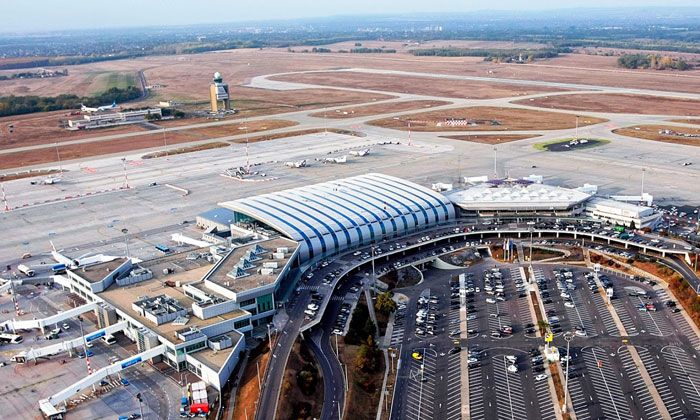Budapest secures ACI Carbon Neutral accreditation
Posted: 26 April 2018 | International Airport Review | No comments yet
Airports Council International (ACI) has confirmed it has awarded Budapest Liszt Ferenc International Airport its carbon neutral standard.


AN ELITE GROUP: Budapest joins only 30 European airports to have secured the accreditation
The accreditation scheme launched by ACI found that the operation of Budapest Airport had reached a healthy enough balance of energy consumption and energy production to be awarded its highest ranking. In Europe, only about thirty airports belong to the carbon-neutral group.
The programme at Budapest Airport that brought it to the milestone took several years. Its operator, Budapest Airport Ltd, launched its energy-rationalisation effort 10 years ago.
Under the framework of this programme, Budapest Airport replaced the lighting fixtures in the terminals with energy-saving LED-based systems, continuously refurbished the district heating pipes and water supply system, and upgraded its air conditioning and air handling equipment on an ongoing basis. As a result, CO2 emissions at Budapest Airport per passenger has been reduced by as much as 44 per cent over the last five years.
Join us live: Shaping the Next Generation of Hold Baggage and Air Cargo Screening
Join us live for an insightful webinar on 11th December at 14:00 GMT, in collaboration with Smiths Detection, as we explore the strategic balance of operational efficiency, regulatory compliance, and sustainability in high-volume security environments.
This session offers a focused look into future-proofing your security strategy.
Key learning points
- Cost Reduction: Strategies to minimize bag travel time while simultaneously reducing operational costs.
- Regulatory Roadmap: Insights into the next wave of regulatory changes and their impact on future investment decisions.
- Sustainable Systems: Practical approaches to building sustainability into security systems and lowering the total cost of ownership (TCO).
- Scalable Solutions: Real-world examples of scalable systems supporting current airport growth and preparing for tomorrow.
Register now for expert insights, case studies, and actionable strategies on operational efficiency!
“In Europe, only thirty airports are in the elite club of carbon-neutral operations, and in Central- Eastern Europe we are the first to receive this accreditation,” said Gábor Szarvas, Environmental Director of Budapest Airport.
He added, “Since passenger traffic has been increasing significantly, we are continuously working on making the airport operation greener, in the framework of our Greenairport programme. This summer the new passenger pier at Terminal 2B will be handed over, featuring state-of-the-art technologies of heating and cooling. In addition, we continue to increase the number of electric vehicles at the airport and to commission charging stations, reducing CO2 emissions due to fossil fuels.”
Apart from optimising its own operation, Budapest Airport is also encouraging its partners at the airport as well as all other organisations and authorities to adopt sustainable practices.
The Greenairport initiative was launched three years ago, aimed at making the operation of Liszt Ferenc International sustainable via joint environmental actions. The energy consumption of the airport – based on the energy consumed for making hot water, heating, and lighting – is equivalent with the energy consumption of 23,000 households, the energy demand of a small town.
Stay Connected with International Airport Review — Subscribe for Free!
Get exclusive access to the latest airport and aviation industry insights from International Airport Review — tailored to your interests.
✅ Expert-Led Webinars – Gain insights from global aviation leaders
✅ Weekly News & Reports – Airport innovation, thought leadership, and industry trends
✅ Exclusive Industry Insights – Discover cutting-edge technologies shaping the future of air travel
✅ International Airport Summit – Join our flagship event to network with industry leaders and explore the latest advancements
Choose the updates that matter most to you.
Sign up now to stay informed, inspired, and connected — all for free!
Thank you for being part of our aviation community. Let’s keep shaping the future of airports together!
Related topics
Airport Carbon Accreditation (ACA), Airport development, Airside operations, Emissions, Sustainability, Sustainable development, Terminal operations


















